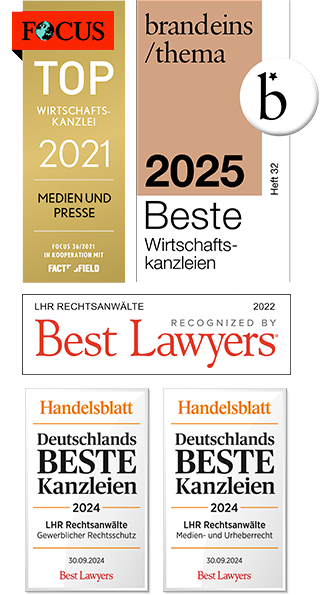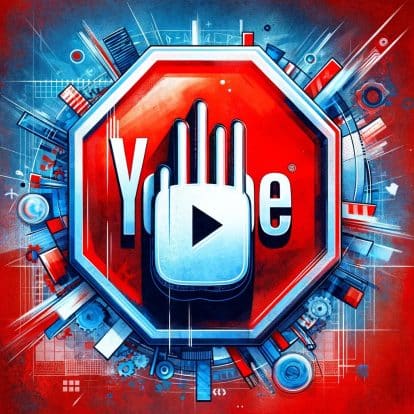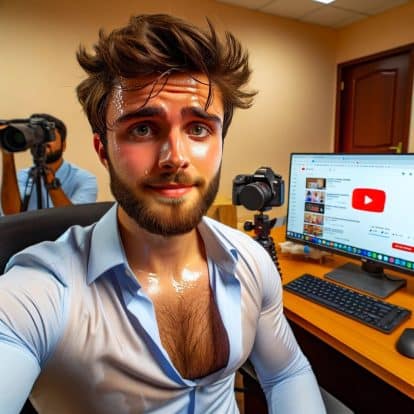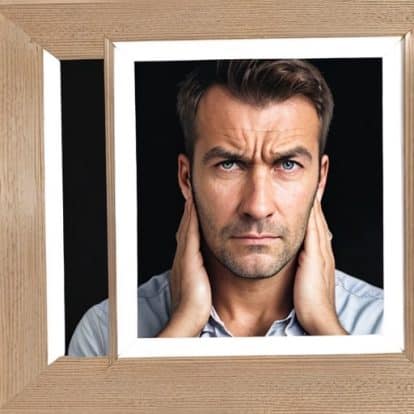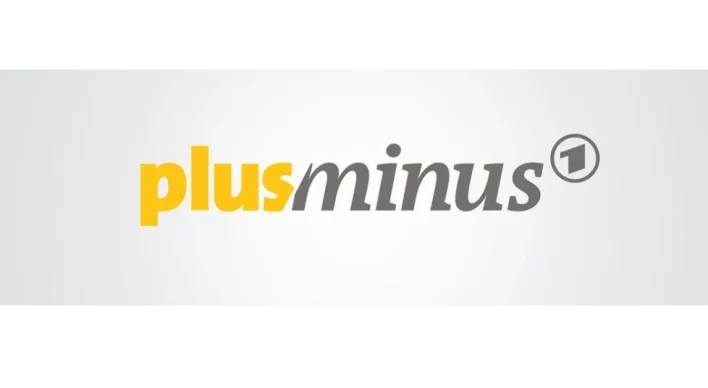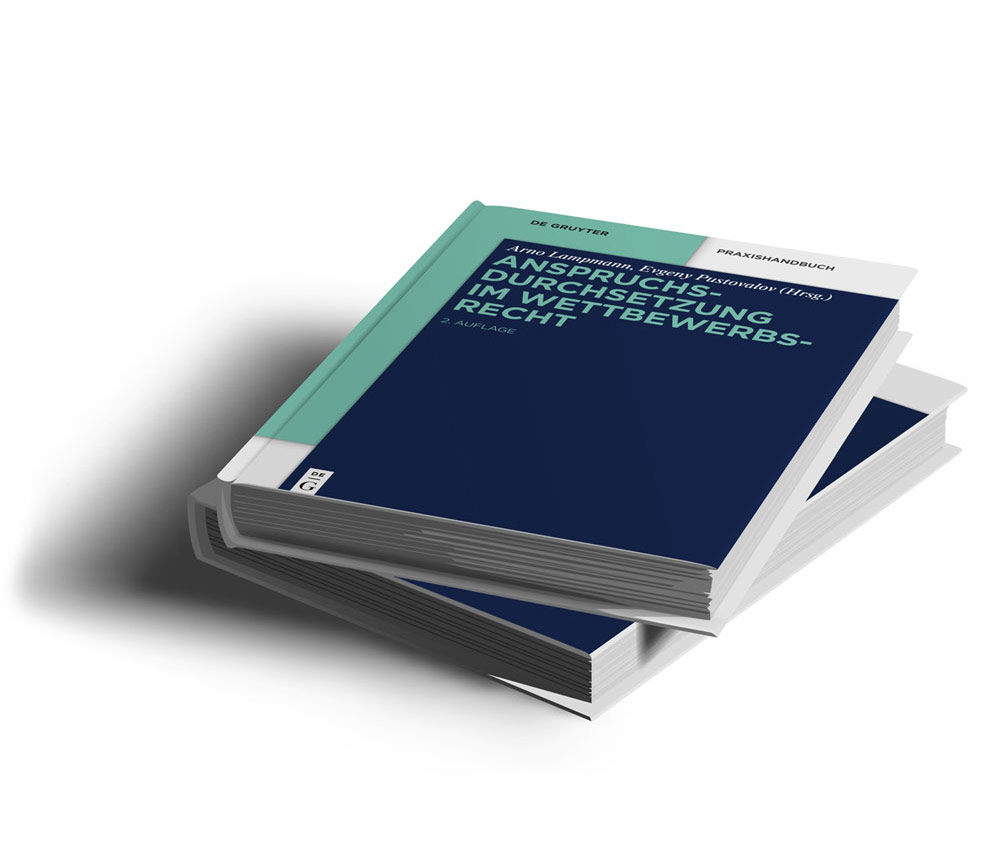Frankfurt Regional Court: YouTube must delete influencer video with voice message
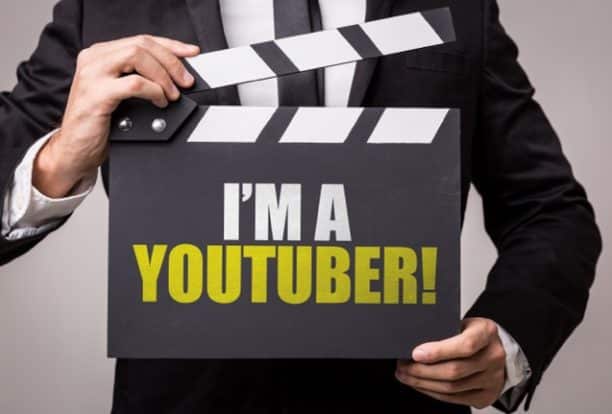
The Regional Court of Frankfurt issued a temporary injunction prohibiting YouTube from making a video publicly accessible that contained a personal voice message.
The proceedings are interesting in several respects. Not only because of the strange legal opinions and the ruthless litigation behavior of the Google Group.
You can find out more about this and what former German President Wulff and the BILD newspaper have to do with it and why YouTube will probably have to pay a fine despite “blocking” the video in this article.
YouTuber without imprint publishes voice message
The applicant objected to the fact that a video contained a confidential voice message that he had sent to the operator of a YouTube channel.
A typical case in which an “up-and-coming” YouTuber not only wanted to gain attention at the expense of a well-known personality with a disparaging video (“reaction video”?). He also later made the request to refrain from certain infringements public with derisive comments. As the applicant did not want to provide any further entertainment material and the perpetrator’s YouTube channel – unsurprisingly – had no legal notice, he contacted YouTube directly with a request to remove the video.
YouTube refuses to delete the video…
After YouTube merely sent a text module – unfortunately one that is frequently sent from there – which was beside the point, it became necessary to apply to the Frankfurt Regional Court for an interim injunction.
In compliance with the strict rulings of the Federal Constitutional Court on procedural equality of arms, the regional court heard YouTube in writing. It is noteworthy that YouTube not only defended itself on the merits, but had also carried out extensive research, simply invented details and was now trying to show the applicant in a bad light.
…invents facts…
Despite the company’s constant complaints – known from other proceedings – that, as a mere platform operator, it could not check the legality of the facts brought to its attention, YouTube was not only suddenly able to do so after a court claim, but also believed that it could base the proceedings on its own facts, which it had fabricated from Wikipedia and other unverified sources.
…and portrays applicants as insensitive
In addition, the applicant was unjustifiably described as a “so-called” financial and success coach who “polarizes” the public with his business appearance. He presented himself to the public as “almost heroic”, using “dramatic music” and spreading “phrase-like tips”. The invective culminated in the assessment that the applicant’s business models appeared “dubious” overall.
Apart from the fact that this type of presentation was beside the point, the behavior of the YouTube platform, which is completely dependent on third-party content, reveals an interesting view of the world: the benefits of user-created content uploaded to the platform are gladly accepted. However, if one of the content providers then wants to take action against infringements committed on the platform to their detriment, they and their content are portrayed as “dubious”.
BGH: Publication of voice messages is inadmissible per se
Thankfully, the legal situation with regard to the publication of voice recordings has been clearly clarified in established supreme court case law. Their publication violates the general right of personality of the person concerned in its manifestation as the author’s right to determine the publication of a statement written by him. And this is independent of the content of the statement based on the specific expression alone.
The BGH states the following regarding the protection of the recording of the spoken word:
A person’s right to self-determination over the spoken word is recognized as an expression of the general right of personality. If this is recorded – even with their consent – such recordings may not be made over their head. The recording of the voice on an audio carrier, which not only fixes the content of the utterances, but also all the details of the expression and removes them from the sphere of a conversation characterized by the fleeting nature of words and objectifies and preserves them so that they can be reproduced at any time in a completely different circle and in a different situation, represents such an intensive “reification” of the personality that such recordings may not be disposed of over the person’s head. In this respect, the person requires the same protection as against the unauthorized publication of their portrait, from which they are protected even if they have not objected to its creation.
(BGH, Urteil v. 26.11.2019, Az. VI ZR 12/19, NJW 2020, 770, 773, Rn. 36, bezugnehmend auf BGH, Urteil v. 10.3.1987, Az. VI ZR 244/85, NJW 1987, 2667, 2668, Rn. 17).
According to these provisions, a voice message recorded even with the consent of the person concerned, regardless of its content, is absolutely protected as such from disclosure due to the associated “objectification” of personality.
BILD only spoke voice message from the then Federal President Wulff
Even the BILD newspaper did not dare to publish the desperate voicemail message left by then Federal President Wulff on Kai Dieckmann’s voicemail in 2011, but merely reproduced it as follows:
REVIEWED BY AN EDITOR: This is what Christian Wulff said to the head of BILD on the mailbox
Frankfurt Regional Court issues preliminary injunction against YouTube
The Frankfurt Regional Court agreed with the applicant that the publication of the voice message constituted an infringement of personality rights and issued a prohibition order (LG Frankfurt, Beschluss v. 6.6.2023, Az. 2-03 O 181/23). In the event of non-compliance, a fine of up to € 250,000 or up to six months’ imprisonment may be imposed. The decision is final.
Why YouTube must pay a fine
It is likely that YouTube will have to pay a fine as soon as the injunction is enforced. One of the platform’s defenses in the preliminary injunction proceedings was that it had temporarily “blocked” the video in question from being viewed in Germany without acknowledging any legal obligation. The platform is apparently of the opinion that it has thus fulfilled its obligation to cease and desist.
However, this is not the case. This is not a blocking of the video in question in the sense that the video would no longer be accessible in Germany or via German servers. The video in question can still be accessed without any problems by changing the specified “location” via the website on the desktop and in the mobile version:
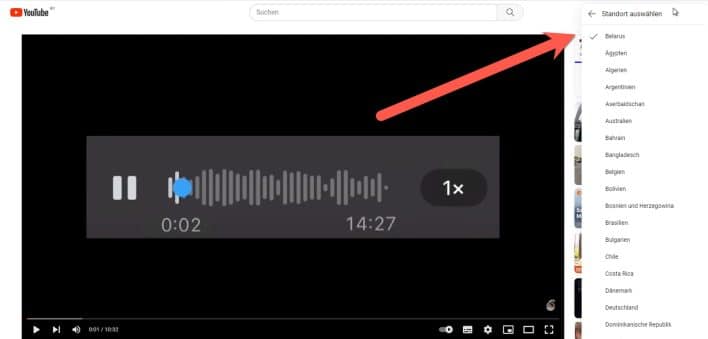
This is likely to constitute a breach of the injunction. We are curious to see what the Frankfurt Regional Court thinks of this.
UPDATE 8.7.2023 – Final declaration and geo-blocking
YouTube has issued a final declaration and recognized the preliminary injunction as a final ruling. In addition, the video has now been geo-blocked for views that are recognized by the system as originating from the territory of the Federal Republic of Germany. Although this should minimize the risk of an administrative fine, it remains questionable whether this is actually sufficient.
Even the European Commission recognizes that geo-blocking does not work properly in border regions. In a report on the results of the ban on geo-blocking introduced by the EU regulation, it states that people living in border regions were particularly affected by the effects of geo-blocking and that the regulation had to meet their demand. People who live in border regions in Germany can sometimes even watch the video on the YouTube platform without changing their location.
According to the case law of the Federal Court of Justice (BGH, Urt. v. 28.4.2016 – I ZR 23/15; GRUR 2016, 1073, Rn. 32), the so-called “scatter loss”, which is also to be taken into account when applying geo-blocking or the reverse case of geo-targeting on which the decision is based, is to be attributed to the responsible party. He explains:
The fact that the defendant uses a geo-targeting method according to its assertion, which the BerGer. assumes to be correct, by means of which consumers from Baden-Württemberg are reached with an accuracy of 95%, who alone the defendant wants to win as customers for its services, does not contradict the materiality of the misleading effect under fairness law. The broadcasting of its advertising in areas in which it does not offer its service, which is fundamentally undesired by the defendant, is not a possibly insignificant “outlier”, but rather a scatter loss that the defendant consciously accepts, even though it could easily rule out misleading advertising by referring to the geographical availability of its offer.
This means that YouTube is anything but out of danger of being fined.
(Disclosure: LHR represents the applicant.)
